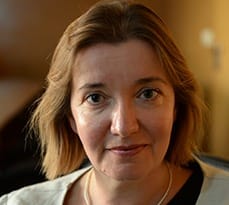
From fighting loneliness on your morning jog, to rethinking land ownership, to helping you repair your broken toaster: the entrepreneurs shortlisted for this year’s £10,000 Cambridge Social Innovation Prize are responding in unique and creative ways to the COVID-19 pandemic and the associated economic crisis.
The prize, now in its second year, rewards and celebrates outstanding founder-CEOs of social enterprises who have a proven track record of social impact within a thriving business. University of Cambridge (Trinity Hall) alumnus Graham Ross Russell has generously supported this prize as part of the College’s ongoing work to nurture entrepreneurial ambition among its students and academic fellows.
“As the world faces a once-in-a-generation crisis, it is crucial that business plays its part in building sustainable, innovative solutions with social responsibility at the core,” he said. “By throwing the spotlight on outstanding entrepreneurs, we hope to inspire the next generation of business leaders to take up their mantle.”
The 4 winners will receive £10,000, 10 days of business support from experts at Cambridge Judge Business School, and introductions into Cambridge entrepreneurial networks and the UK social sector.
When selecting the shortlist for this year’s prize, Programme Director Dr Belinda Bell saw an opportunity to make a targeted contribution by supporting social businesses whose work addresses the pandemic and the associated crises in the economy, mental health, education, social care, housing and employment.
“Social enterprise is key to the UK’s recovery over the coming months and years,” she said. “Our support will help social CEOs develop personally and professionally so they can lead in rebuilding the economy on more equitable and sustainable terms.”
The shortlist is currently being considered by a panel of leaders in impact investing, social enterprise and government, including Baroness Glenys Thornton, Harriet Lamb CBE, Dr Hosein Khajeh-Hosseiny, Barnaby Perks and Man-Sze Li. The winners will be announced in July.
The 2020 shortlist
Fuad Mahamad – ACH (Birmingham and Bristol)
ACH specialises in the resettlement of refugees by providing safe, secure and comfortable housing combined with culturally sensitive support and employability skills training. They focus on upskilling and supporting refugees into sustainable, higher-level employment in order to develop their independence and ease their integration into UK life.
Josh Babarinde – Cracked It (London)
Cracked It is a smartphone repair service, staffed by young ex-offenders to support them away from crime and towards employment. They reduce the friction of smartphone repair by bringing their services directly to the consumer with regular pop-up repair clinics in 25 large workplaces across London.
Jennifer Neff and Leeann Monk Ozgul – Elemental Software (Derry, Northern Ireland)
Elemental is a social prescribing platform already being used by 310 hubs across the UK and Ireland. It connects people to community services and resources, such as gardening, walking groups and debt advice, which enhance their health and wellbeing. They are also committed to scaling and measuring the uptake and impact of the social prescribing model of care.
Harri Coleman – FABRIC (Swansea and Neath, Wales)
FABRIC works to ensure that care leavers are not defined by their start in life by providing these young people with a loving home. They are supported to realise they are loved, worthy and have the potential to create the life they want, so that their lives are not defined by having been in care.
David Allison – GetMyFirstJob (Caterham, Surrey)
GetMyFirstJob uses innovative technology to inform young people about their career options and create effective and efficient routes into training and employment. By helping young people broaden their awareness of potential career paths, they help to break down barriers like the gender stereotyping of industries or the myths around apprenticeships.
Ivo Gormley – GoodGym (London)
GoodGym is a fitness community that combines exercise with manual labour for community projects and supporting isolated older people. Their mission is to make it as easy as possible for people to use their exercise to benefit their community, and by doing so increase health and wellbeing and reduce isolation and loneliness.
Angela McKay – Homebaked (Liverpool)
Homebaked is regenerating the high street “brick by brick and loaf by loaf”, using money that is spent in the neighbourhood to benefit the community. They run a community land trust and co-operative bakery co-owned and co-produced by people who live and work in the Everton and Anfield area of Liverpool.
Sophie Unwin – Remade Network (Edinburgh, Scotland)
The Remade Network helps communities to set up repair education social enterprises around the world, based on the model of the Remakeries in Brixton and Edinburgh. They are doing something very radical – questioning and providing alternatives to consumerism – through the very practical work of building markets in repair education.
Kate Swade – Shared Assets CIC (London)
Shared Assets is a “think and do” tank with a mission to make land work for everyone. They are environmental governance experts with a track record of working alongside landowners, public authorities, activists and common good land users to create viable new models of land management that benefit people and the environment.
Gill Green – STORM Skills Training CIC (Manchester)
STORM Skills Training provides a peer-reviewed, skills-based model of training in suicide prevention, postvention or community support after a suicide, and self-harm mitigation to frontline staff and volunteers. They support organisations in healthcare, social care, education and youth justice through training, bespoke programmes, conferences and their grassroots “Reaching Out…” project.
Rebecca White – Your Own Place CIC (Norwich, Norfolk)
Your Own Place works to prevent homelessness in partnership with organisations across the third, statutory and private sectors. The work primarily with at-risk young people and care leavers, building strong relationships by treating each other as equals. They deliver tenancy and independent living skills in a “training flat”, led by mentors who they hope will be role models.


